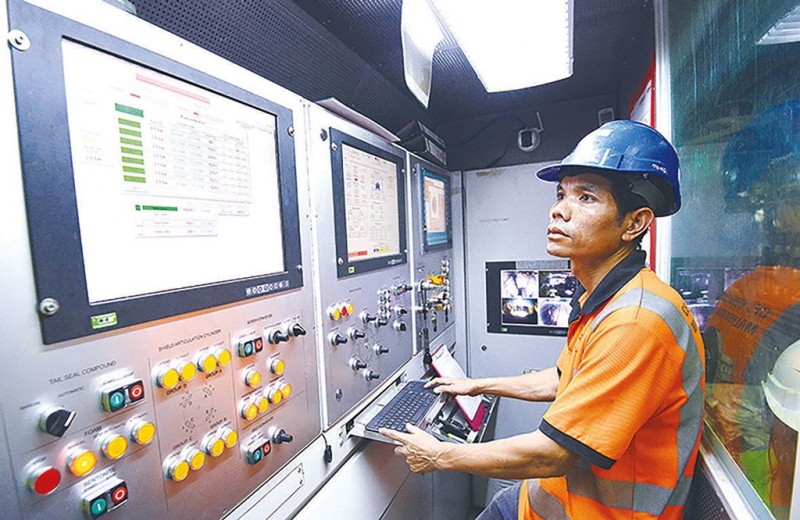
Access to digitally savvy talent is fast becoming a critical component for businesses, as more enterprises seek to pivot to the cloud and transform digitally. Yet, the Asean region is witnessing a severe shortage in this area, potentially hampering business growth. According to a recent study by PricewaterhouseCoopers, only 19% of Malaysian respondents feel equipped with the adequate digital skills to perform their job. This is further compounded by rising rates of skill-related underemployment (35.8%), and a shortage of local tech talent — only 10% of Malaysia’s population are skilled digital workers, a majority of which are imported.
This shortfall is also taking a toll on organisations’ abilities to adopt critical technologies needed to advance their operations and adapt to a digital world. Just last year, International Data Corp found that more than 85% of organisations in the Asia-Pacific region struggled to gain agility from cloud adoption because of barriers such as low competencies to support the journey.
Skilled migration as a talent source is one lever we currently cannot pull as international travel bans are in place for many countries and may continue for the foreseeable future. In response to these challenges, organisations are turning to emerging technologies to remain competitive, ensure business continuity, and help address talent needs. Automation is one such technology that is shaking up the business landscape.
Reskilling and Automating
While automation has shown great potential, research indicates that Malaysians are increasingly apprehensive of it, with 71% fearing their jobs might be at risk with the rise of such technology — a sharp 34% increase from the previous year. These fears add to ongoing concerns around job opportunities and security in the pandemic, painting a bleak picture of economic recovery.
The government has sought to address these concerns with more than RM100 million invested in its MyDigitalWorkForce Work in Tech initiative to upskill and reskill employees.
In parallel, the emphasis has been placed on how automation will accelerate Malaysia’s digital economy and its role in enabling business continuity, recovery, and resilience for every enterprise. Automation frees employees to focus on higher value tasks, enabling them to augment their skillsets with emerging capabilities. At the same time, it propels organisations to drive more strategic competencies across their business, that grant them an economic advantage over their competitors.
For organisations looking to tap the benefits and speed of automation, business leaders must thus look to proactively upskill their workforce alongside modernising their tech infrastructure. This will enable organisations to pursue a holistic approach to transformation, across their people, processes and technology, and position themselves for future-readiness.
Trainocate, an authorised learning partner for technology multinational companies and authorised training partner for Nutanix, recommends the same for organisations in Malaysia. Ruby Kaur, country manager of Malaysia shares: “The pandemic has boosted transformation and automation efforts across industries in Malaysia. Many organisations are now transitioning from antiquated and traditional IT infrastructures to hybrid or multi-cloud environments.”
“However, these changes come alongside an urgency for organisations to upskill their existing IT workforce when adopting fast-growing technologies. Automation will continue to trend upward in the pandemic, and the World Economic Forum (WEF) forecasts that over 97 million new roles will be generated as a result — business leaders will need to push for automation, or risk falling behind.”
Revamping IT with Automation
Manual, labour-intensive, traditional IT blocks productivity and impacts business ability to respond in an agile manner to changing environments. In fact, across the globe, automation is seeing an increase in uptake in the shift to a more on-demand IT-as-a-Service model. In fact, the latest Enterprise Cloud Index from Nutanix revealed that 31% of respondents see automation as a key priority for the next 12 to 18 months. By reducing human intervention in processes such as deploying user environments, managing database lifecycle, and deploying cloud workloads, human error is mitigated, and efficiency increased. The scarce digital skills of IT teams can then be focused on strategic tasks that shift the needle for businesses.
In light of the rapid change that has been accelerated in response to the pandemic, businesses are now reviewing their digital transformation plans and reassessing how strategic IT investments can drive business growth. Organisations must continue to tackle challenges with innovation and optimise business processes, and automation is a key factor in this.
Whether it be to bridge the digital skills gap and grow the local tech talent pool, save costs, or realise more long-term business benefits, there are plenty of reasons for Malaysia’s enterprises to consider automation across their IT environments.
Source: https://themalaysianreserve.com/2021/08/04/accelerating-malaysias-economic-recovery-with-automation/

